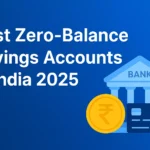The electric vehicle (EV) revolution in India is accelerating fast, fueled by government policies, rising fuel prices, and consumer interest in sustainable mobility. But let’s be honest—owning an EV in India isn’t all smooth rides and clean energy dreams. Two massive roadblocks have been holding the market back: financing options for EV buyers and the unpredictable resale value of EVs. Traditional banks and lenders have been hesitant to provide easy loans for EVs because they see the industry as high-risk and uncertain. At the same time, buyers are unsure whether their EV will have good resale value after 3–5 years, especially with battery degradation concerns.
This is exactly where fintech companies are stepping in—redefining how loans are disbursed, how EV ownership is financed, and even how resale value can be stabilized. Fintech isn’t just enabling people to buy EVs; it’s creating an entirely new financial ecosystem around them.
Let’s dive deep into how fintech is solving these two major pain points:
EV Financing: Why Traditional Lenders Hesitate and How Fintech Changes the Game
Traditional banks have always worked with predictable risk models—cars with internal combustion engines (ICEs) are easier to finance because their resale value, depreciation, and demand are well-established. EVs, on the other hand, are a new segment, making bankers nervous. They worry about battery replacement costs, uncertain demand, and the lack of secondary markets.
This is where fintech platforms bring disruption:
🔸 Flexible Loan Structures
Unlike rigid bank loans, fintechs are offering customized EMI plans, step-up repayment options, and even subscription-style ownership models for EVs. For example, a buyer can pay lower EMIs in the first few years (when the car is new) and higher EMIs later, making the purchase more affordable upfront.
🔸 Instant Digital Approvals
Fintech apps are built on fast credit risk engines. Using alternative data (like utility bill payments, UPI transactions, or salary credits), they can approve EV loans within minutes—something banks take weeks to do. This matters for younger buyers who don’t have long credit histories but want to buy EVs.
🔸 Green Financing Incentives
Some fintechs, in collaboration with NBFCs, are offering lower interest rates for EVs compared to petrol/diesel cars—a move to push eco-friendly adoption. On top of that, tie-ups with EV manufacturers allow fintechs to bundle insurance, charging plans, and even maintenance into a single EMI package.
In short, fintechs are making EVs affordable, accessible, and less intimidating to finance.
Resale Value Woes: How Fintechs are Creating Stability
Ask any EV buyer what scares them most, and you’ll hear one answer: “What if my EV loses value too fast?” Since EV technology is evolving quickly, buyers fear their car might depreciate heavily when newer models with better batteries launch.
Here’s how fintechs are tackling resale fears:
🔸 Battery Health Analytics
Some fintech-backed platforms are tracking battery usage, charging patterns, and performance data through IoT sensors. By creating a verifiable digital battery health report, they give buyers and future owners confidence about the EV’s longevity. This directly improves resale value.
🔸 Buyback and Resale Marketplaces
Several fintech startups are working with EV manufacturers and used-car platforms to guarantee minimum buyback value. This is similar to how Apple offers trade-in programs for iPhones. Knowing that you’ll get, say, 40% of your EV’s value back after 4 years makes buyers more confident.
🔸 Insurance-Linked Resale Programs
Another clever fintech innovation is integrating resale with insurance. Some platforms ensure that part of your insurance premium contributes to a resale guarantee, meaning you get better returns when you sell your EV.
🔸 Blockchain for Vehicle History
To fight uncertainty in resale, fintechs are using blockchain to create tamper-proof ownership and usage histories for EVs. This transparency makes it easier for used EV buyers to trust what they’re buying, boosting resale demand.
The Bigger Picture: Why Fintech Matters for India’s EV Growth
Without easy financing and resale confidence, India’s EV adoption would hit a wall. Fintech companies are acting as the missing bridge between EV manufacturers, buyers, and traditional lenders. They aren’t just giving loans; they’re creating an ecosystem where EV ownership feels as safe as owning a petrol or diesel car.
At the same time, these fintech innovations are aligned with India’s national goals: reducing oil imports, cutting carbon emissions, and pushing green mobility. As charging infrastructure grows and EV prices fall, fintech will continue to play a catalyst role in mass adoption.
What’s Next for Fintech-Driven EV Financing?
The future looks even more exciting with new models emerging:
🔸 Pay-per-KM Financing
Imagine paying EMIs based on how much you actually drive. Fintechs are experimenting with IoT-based meters that link repayment directly to vehicle usage.
🔸 EV Subscriptions
Instead of owning an EV, fintechs could push subscription models where you “rent-to-own” over time, reducing the risk for first-time buyers.
🔸 Carbon Credit Integration
With EVs saving carbon emissions, fintechs could link ownership to carbon credits, which can be monetized in future markets. This would turn EV ownership into not just a green choice, but also a financially rewarding one.
Conclusion
India’s EV story can’t succeed without fixing finance and resale challenges—and fintech is leading this transformation. By offering flexible loans, instant approvals, resale guarantees, and battery health tracking, fintech is rewriting the rules of mobility finance.
The bottom line? In the next 5 years, buying an EV in India will be as easy and secure as buying a petrol car today—and fintech will be the reason why.




